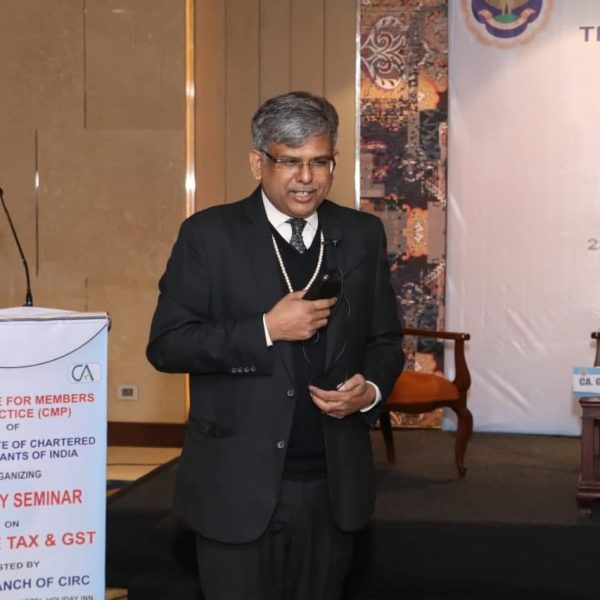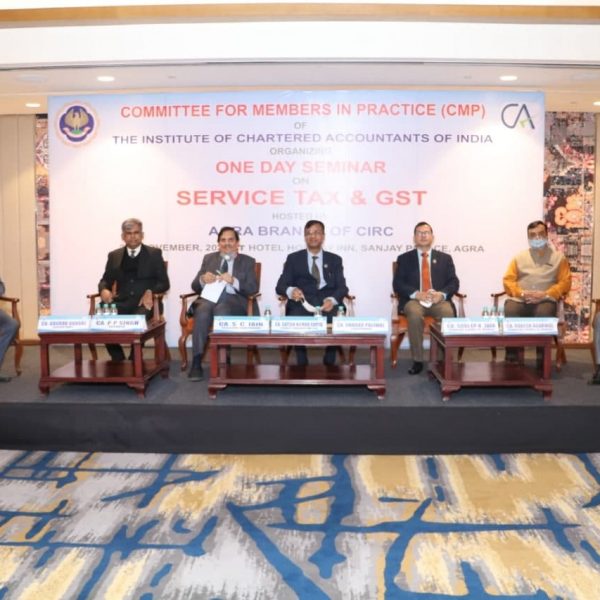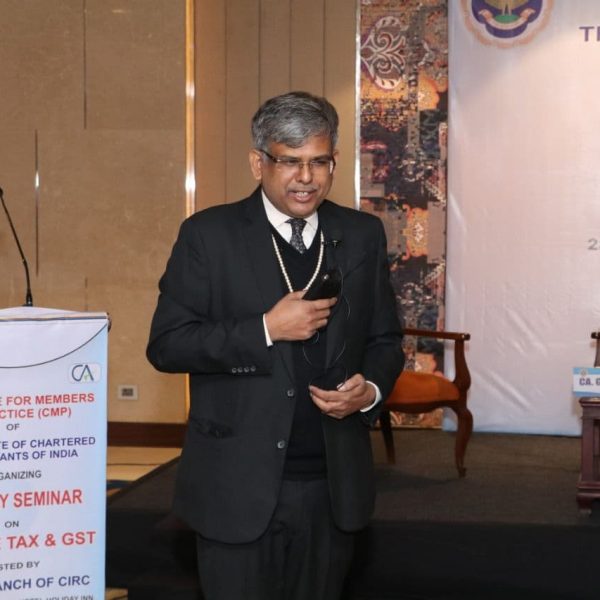Meaning of repeal of statutes.
Meaning: Repeal means to revoke, abrogate, or cancel particularly a statute. Any statute may repeal any Act in whole or in part, either expressly or impliedly by enacting matters contrary to and inconsistent with the prior legislation. For example, the Companies Act, 2013 repealed the Companies Act 1956, Thus a statute frequently states that certain prior statutory provisions are hereby repealed. Under General Clauses Act, 1897, Section 6 “Repeal” connotes abrogation or obliteration of one statute by another, from the statute book as completely “as if it had never been passed.”
When an Act is repealed “it must be considered (except as to transactions past and closed) as if it had never existed.”
There are two types of repeal:
- Express repeal
- Implied repeal
Express repeal: Express repeal is an expression that means the abolition of the previously enacted statute by the newly enacted provisions of a statute through expressed words embedded under the new statute enacted. The statute which has been repealed is called repealed statute and the one which replaces the earlier statute is called the repealing statute. For example, the Companies Act 2013 has repealed the Old Companies Act 1956 here old act is called the repealed act, and New Act 2013 is called repealing act. In general, when an earlier statute or some of its provisions are repealed through express words embedded under the newly enacted statute stating that the provisions are now of no effect is called the express repeal.
Essential features that constitute express repeal?
- there must be a statute to be repealed.
- The earlier statute must be repealed by the new enacting or repealing statute.
- The newly enacted statute ( called repealing statute) must have a clear intention showing the effect of the repeal.
Implied repeal: The courts will treat matters as repealed by implication only if the earlier and later statutory provisions are clearly inconsistent. When a repealing provision is itself repealed, this does not revive any provision previously repealed by it, unless intent to revive is apparent, but it may allow common law principles again to apply.
The concept of implied repeal is loosely based on the following maxim “Leges posteriores priores contrarias abrogant”. This means that the earlier or previously enacted law shall be obliterated or abolished by the new one.
To conclude implied repeal, the burden lies over the person who asserted the implication of repeal. However, it has also been mentioned that if the newly enacted statute shows no clear intention or is inconsistent with the provisions of the earlier act then such an assertion or presumption is rebutted and the act of repeal is done by inferring necessary implications.
For the implied repeal of a statute following points are to be considered:
- Whether the previously enacted laws are in direct contradiction to the later enacted laws.
- The conflict between the laws is of such a nature that can’t be resolved and reconciliation between the laws is not possible.
- Whether the newly enacted act is not consistent with the previously enacted act and one has to be obliterated.
- When both the laws are of such a nature that occupy and deal with the same field.
case laws
Delhi Municipality V. Shivshanker, [AIR 1971 SC 815]
In the instant case it was held by the Supreme Court of India that the test which is applied in case of repugnancy under Article 254 of the Indian constitution while resolving the conflicts arising between the laws enacted by the parliament and the laws created by the state legislature, this test of determining repugnancy shall be applied in case of implied repeal of a statute also. This test includes:
- Whether there exists a direct contradiction between the two statutes or provisions.
- When the law tends to occupy the same field.
- When the legislature explicitly focused on the code of the particular subject matter replacing the earlier law.
Ratanlal Adukia v Union of India (AIR 1990 SC 104)
In the instant case, the Supreme Court stated that the doctrine of implied repeal is loosely based on the statement that the legislature assumed the current state of the law did not intend to generate any vagueness by retaining the conflicting provisions. The court while implicating this doctrine examines the nature and scope of the two enactments by giving effect to the legislative intent.
Power To repeal: Just as the Legislature has the power to enact laws, similarly it has the power to repeal laws. The efficacy of the Legislature depends upon the possession of the power to repeal the existing law, for without this attribute the power to enact would be a nullity, and the body of the law a series of contradictory enactments. Consequently, the legislative power to repeal prior laws is not inhibited by any constitutional prohibitions but exists as a necessary part and increment of the legislative power and function. No statute can make itself secure against repeal. There is nothing to prevent any Parliament from enacting that a particular statute shall never in any circumstances be altered or abrogated. It is within the power of any Parliament to repeal any of the Acts passed by its predecessors and it is not within the power of any Parliament to prevent the repeal of any of its own Acts or to bind its successors.
Repealing and amending Acts have no legislative effect, but are designed for editorial
revision, being intended only to excise dead matter from the statute book and to reduce its volume.Mostly, they expurgate amending Acts, because having imparted the amendments to the main Acts, those Acts have served their purpose and have no further reasons for their existence. At times, inconsistencies are also removed by repealing and amending Acts. The Only object of such Acts, which in England are called Statute Law Revision Acts, is legislative spring-cleaning and they are not intended to make any change in the law.
A statute is either perpetual or temporary. It is perpetual when no time is fixed for its
duration, and such a statute remains in force until it is repealed which may be expressed or implied. A perpetual statute is not perpetual in the sense that it cannot be repealed; it is perpetual in the sense that it is not abrogated by efflux of time or by non-user. A statute is temporary when its duration is only for a specified time, and such a statute expires on the expiry of the specified time unless it is repealed at earlier. Simply because the purpose of a statute, as mentioned in its preamble, is temporary, the statute cannot be regarded as temporary when no fixed period is specified for its duration. The Finance Acts which are annual Acts are not temporary Acts and they often contain provisions of a general character which are of a permanent operation. A
cessation of transitional legislative power has also no effect on the continuance of a perpetual Act enacted during the continuance of that power. The duration of a temporary statute may be extended by a fresh statute or by the exercise of a power conferred under the original statute. When the life of a temporary Act is merely extended, it cannot be said that a new law has been enacted; but if the extension is accompanied by any substantial amendment, it would not be a case of mere extension. It appears that after a temporary statute expires, it cannot be made effective by merely amending the same. The only apt manner of reviving the expired statute is by re-enacting a statute in similar terms or by enacting a statute expressly saying that the
expired Act is herewith revived.
NEED FOR REPEAL
A debate on the need to repeal obsolete laws has been set in motion in India with the government taking various steps to look into the matter. Even our erstwhile coloniser, Great Britain, initiated the process of repealing 38 such laws in the year 2013, which were passed between the years 1849 and 1942, pertaining to the construction and maintenance of the Indian Railways. Meanwhile, our own post-independence efforts to weed out obsolete laws, through a process of spring cleaning, remain pending. In the past also, the Law Commission had submitted various reports identifying a number of laws as obsolete which demanded repeal. Prime Minister on August 2014 had approved the constitution of a Committee headed by Shri R. Ramanujam, to carry out a review to identify obsolete laws and to examine all Acts recommended to be repealed by the Committee on Review of Administrative Laws, which had been appointed by the Union Government of the then Prime Minister, Shri Atal Bihari Vajpayee, in 1998. The Prime Minister has expressed concern that out of the 1382 Acts recommended for repeal by that Committee, only 415 have been repealed so far. He has called for a focused and result-oriented exercise to systematically weed out archaic laws and rules.
Accordingly, a Committee was constituted on 1 September 2014 consisting of Shri R. Ramanujam, Secretary, of the Prime Minister’s Office as Chairperson and Shri V.K. Bhasin, Former Secretary, the Legislative Department, Ministry of Law and Justice as Member.
Effect of Repeal:
General consequences of repeal
- A newly enacted law repudiates the existing one.
- The statute after getting repealed becomes ineffective.
- Statute repealed is abolished by the repealing statute as if it had never been made by the legislature.
- Except for a saving clause, each and every part of the statute is considered unconstitutional.
- In order to validate a transaction made under a repealed statute, the law can retrospectively amend the statute even after it is obliterated.
Effects under the General Clause Act, 1987
Section 6.Effect of repeal
Where this Act, or any Central Act or Regulation made after the commencement of this Act, repeals any enactment hitherto made or hereafter to be made, then, unless a different intention appears, the repeal shall not—
- revive anything not in force or existing at the time at which the repeal takes effect; or
- affect the previous operation of any enactment so repealed or anything duly done or suffered thereunder; or
- affect any right, privilege, obligation, or liability acquired, accrued, or incurred under any enactment so repealed; or
- affect any penalty, forfeiture, or punishment incurred in respect of any offence committed against any enactment so repealed; or
- affect any investigation, legal proceeding, or remedy in respect of any such right, privilege, obligation, liability, penalty, forfeiture, or punishment as aforesaid;
and any such investigation, legal proceeding or remedy may be instituted, continued or enforced, and any such penalty, forfeiture or punishment may be imposed as if the repealing Act or Regulation had not been passed.
GST has a repeal and saving clause in Section 174, but saved the investigation, legal proceedings may be instituted, continued, or enforced even after the repeal of various Acts.
174 (2) The repeal of the said Acts and the amendment of the Finance Act, 1994 (32 of 1994) (hereafter referred to as “such amendment” or “amended Act”, as the case may be) to the extent mentioned in the sub-section (1) or section 173 shall not—
- revive anything not in force or existing at the time of such amendment or repeal; or
- affect the previous operation of the amended Act or repealed Acts and orders or anything duly done or suffered thereunder; or
- affect any right, privilege, obligation, or liability acquired, accrued or incurred under the amended Act or repealed Acts or orders under such repealed or amended Acts:
Provided that any tax exemption granted as an incentive against investment through a notification shall not continue as a privilege if the said notification is rescinded on or after the appointed day; or
- affect any duty, tax, surcharge, fine, penalty, interest as are due or may become due or any forfeiture or punishment incurred or inflicted in respect of any offence or violation committed against the provisions of the amended Act or repealed Acts; or
- affect any investigation, inquiry, verification (including scrutiny and audit), assessment proceedings, adjudication and any other legal proceedings or recovery of arrears or remedy in respect of any such duty, tax, surcharge, penalty, fine, interest, right, privilege, obligation, liability, forfeiture or punishment, as aforesaid, and any such investigation, inquiry, verification (including scrutiny and audit), assessment proceedings, adjudication and other legal proceedings or recovery of arrears or remedy may be instituted, continued or enforced, and any such tax, surcharge, penalty, fine, interest, forfeiture or punishment may be levied or imposed as if these Acts had not been so amended or repealed;
- affect any proceedings including that relating to an appeal, review or reference, instituted before on, or after the appointed day under the said amended Act or repealed Acts and such proceedings shall be continued under the said amended Act or repealed Acts as if this Act had not come into force and the said Acts had not been amended or repealed.
174 (3) The mention of the particular matters referred to in sub-section (1) and (2) shall not be held to prejudice or affect the general application of section 6 of the General Clauses Act, 1897 (10 of 1897) with regard to the effect of repeal
Section 7. Revival of repealed enactment requires to State the reason & Purpose of repeal:
(1) In any [Central Act] or Regulation made after the commencement of this Act, it shall be necessary, for the purpose of reviving, either wholly or partially, any enactment wholly or partially repealed, expressly to state that purpose.
(2) This section applies also to all [Central Acts] made after the third day of January 1868, and to all Regulations made on or after the fourteenth day of January 1887.
Section 8. Construction of references to repealed enactment means a reference to new enactment. For example, section 115JB of income tax has referred to the Companies Act 1956 for Computing book profit, Now reference Shan be made to the Companies Act 2013.
[(1)] Where this Act, or any [Central Act] or Regulation made after the commencement of this Act, repeals and re-enacts, with or without modification, any provision of a former enactment, then references in any other enactment or in any instrument to the provision so repealed shall, unless a different intention appears, be construed as references to the provision so re-enacted.
[(2) [Where before the fifteenth day of August 1947, any Act of Parliament of the United Kingdom repealed and re-enacted, with or without modification, any provision of a former enactment, then references in any [Central Act] or in any Regulation or instrument to the provision so repealed shall, unless a different intention appears, be construed as references to the provision so re-enacted].
Repeal of Act making textual amendment in Act or Regulation [section 6A]
Where any [Central Act] or Regulation made after the commencement of this Act repeals any enactment by which the text of any [Central Act] or Regulation was amended by the express omission, insertion or substitution of any matter, then, unless a different intention appears, the repeal shall not affect the continuance of any such amendment made by the enactment so repealed and in operation at the time of such repeal.










